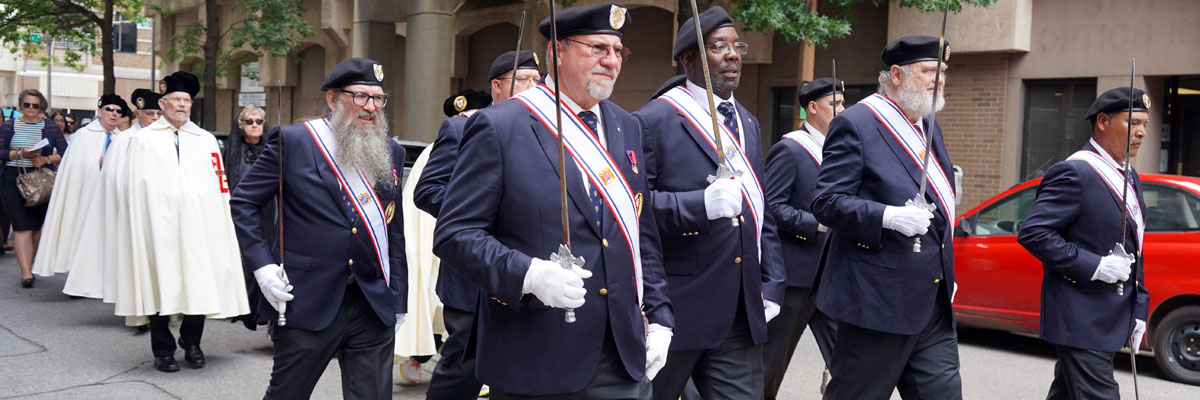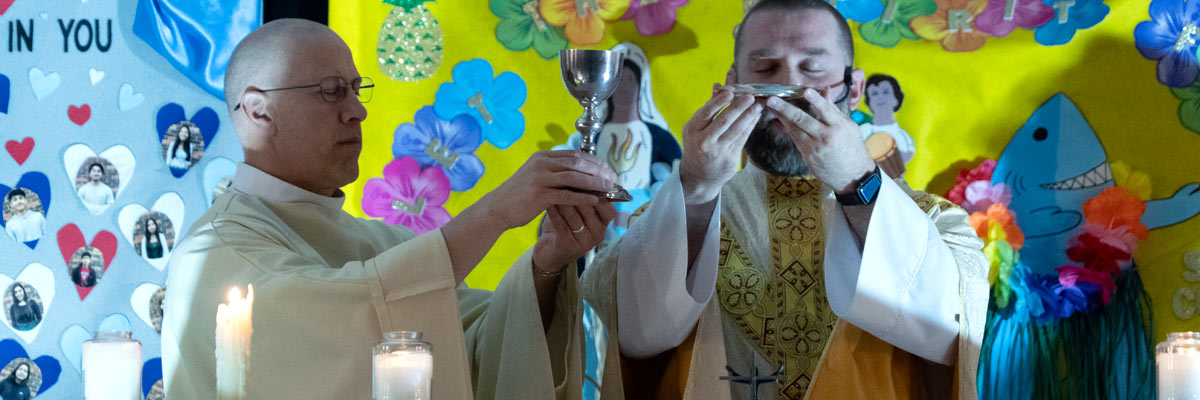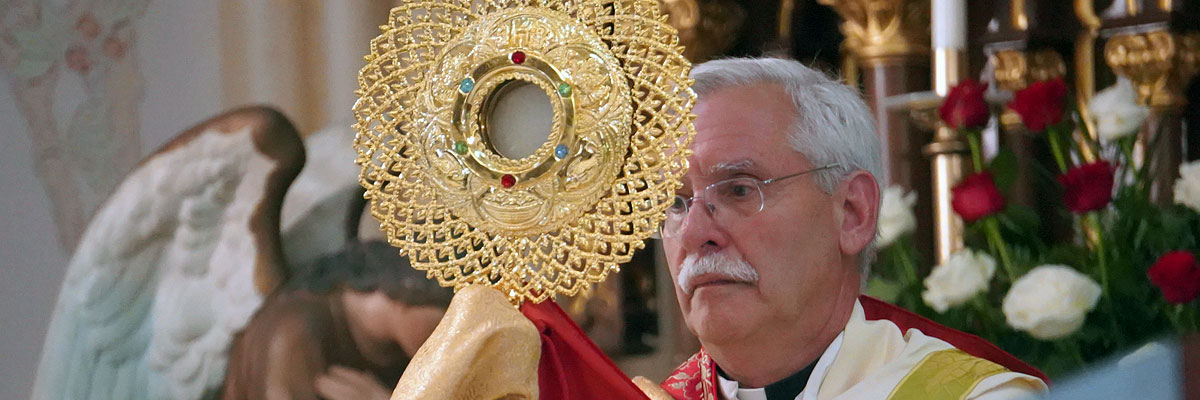Official Website of the
Catholic Diocese of Little Rock
Fifth Sunday of Easter, Year B
Published: May 3, 2015
Bishop Anthony B. Taylor preached the following homily during confirmation Masses at St. Michael Church in Van Buren on Saturday, May 2, 2015, and St. Boniface Church in New Dixie on Sunday, May 3, 2015 as well as during the Deacon Recommitment Mass at St. John Catholic Center in Little Rock on Sunday, May 3, 2015.

Bishop Taylor
We live in a culture that has been impoverished by individualism, which is made all the worse by the fact that as a society we value personal autonomy at the expense of the common good. Our national myth is that of the self-made man, when there really is no such thing. We may deserve a lot of credit for working hard, but we were the product of a family, of a community, of schools, of a nation, which has given us a leg up on others who work equally hard but lack the undeserved advantages with which we have been blessed.
This sense of the importance of community has been historically a real strength of the Catholic Church. Indeed our central sacrament is that of "Communion," which produces union not only with God through the Body and Blood of his Son, but also union with each other in the Body and Blood of Jesus our brother.
Unfortunately, in the United States even Catholics are more and more suffering the effects of individualism, which has undermined the foundations of our culture with devastating effect. The individual is now the fundamental cell of society, not the family. Everyone feels entitled to whatever they want, their own "personal actualization," regardless of how it will affect others.
If Jesus is the nourishment that gives life to all the branches of the vine, isn't it obvious that the Eucharist is the sacramental means by which we receive that nourishment?
Divorce, not because of domestic violence for which divorce does often become a necessity, but simply because the marriage is unhappy — regardless of the damage it will do to the children. Many people do work very hard to try to make a difficult marriage work, often motivated by the realization that children really do need both parents living together, even if the home life isn't all that great. And I really do admire couples who stick with it. That's the way it is with community.
Community sometimes requires us to put up with a lot and it always requires us to live for something bigger than ourselves. And it is communion with God that makes this possible. So it should be no surprise that individualism — that lack of a sense of community, lack of a larger vision that can give meaning and purpose to current struggles — leads to godless secularism, living as if what God wants is irrelevant to the decisions we have to make in the "real" world — even for people who still go to church out of habit.
That's what Jesus is talking about in today's Gospel of the vine and the branches. He emphasizes the necessity of remaining united to him because that is the only way that we will be able to produce the fruit that the Father, the vine-grower, expects from the branches. Without communion with Jesus, it is not possible to respond to the Father as he would like because a living relationship with Jesus is like the sap, the nourishment, that gives life to all of the branches of the vine.
In the Old Testament the vine is a symbol of the covenant of God's union with Israel, and here, Jesus uses it as a symbol not only of union with him, but also of union among the disciples themselves. Union with Jesus will of necessity include times of pruning, difficult times of purification, in order to enable us to produce the proper fruits of discipleship.
If Jesus is the nourishment that gives life to all the branches of the vine, isn't it obvious that the Eucharist is the sacramental means by which we receive that nourishment? His body united to ours, his blood now flowing in our veins. This communion with Jesus gives us eternal life because being the Second Person of the Blessed Trinity, his blood is divine, his life is eternal and we now have that eternal life flowing within us. And this communion with Jesus unites us also to all fellow believers who, through the Eucharist, have become our blood brothers and sisters whose life we now share as branches of the same vine.
That realization, taken to heart, is the only path capable of correcting the ills of our society and healing the brokenness that has already done so much damage to our nation's soul. "A branch cannot bear fruit unless it remains connected to the vine!"








